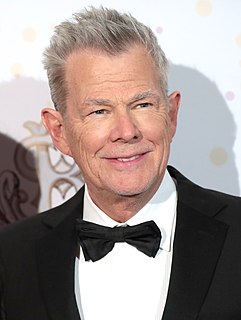A Quote by Mary Jo Salter
Like a page dipped in ink, your cuff's in my coffee. / You have something to tell with unbuttoned sleeves.
Related Quotes
In a 22-page comic, figuring an average of four to five panels a page and a couple of full-page shots, a writer has maybe a hundred panels at most to tell a story, so every panel he wastes conveying a.) something I already know, b.) something that's a cute gag but does nothing to reveal plot or character, or c.) something I don't need to know is a demonstration of lousy craft.
Yes, the fear of its blankness. At the same time, I kind of loved it. Mallarmé was trying to make the page a blank page. But if you're going to make the page a blank page, it's not just the absence of something, it has to become something else. It has to be material, it has to be this thing. I wanted to turn a page into a thing.
I'm in the storytelling business, and so you're always drawn to the unusual. And early on, I discovered that's the easiest way to tell stories... If you come up through a newspaper as I did, your whole goal is to get a story on the front page, and you only get something on the front page if it's unusual.





































